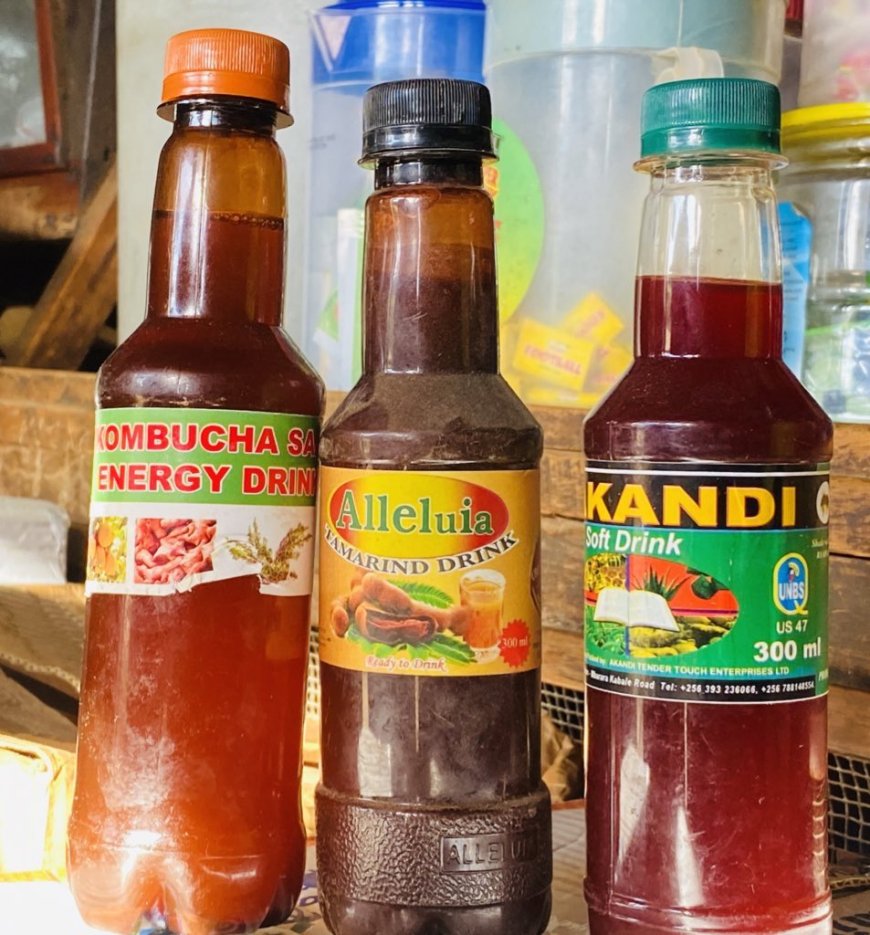Uganda's Kombucha Crisis: Mubende Companies Forced to Close Over Heavy Taxes
The Kombucha companies affected by this new tax are not alone, as many other businesses in different industries are also facing similar challenges. Some have even resorted to lay-offs and downsizing in order to sustain their operations. The consequences of these closures are far-reaching, not only for the business owners but also for the employees. Many of these companies employed a significant number of young people, who are now left jobless. This adds to the already high rates of unemployment in the town, further burdening the local community.

In the heart of Uganda lies Mubende, a town facing a brewing crisis within its once-thriving Kombucha industry. Home to several companies specializing in the popular fermented beverage, Mubende has recently been rocked by the closure of these businesses, all due to the weighty burden of heavy taxes imposed by the Uganda Revenue Authority.
The introduction of stamp duty means that for every spirit or Kombucha bottle produced, businesses are required to pay an additional tax before the product can even reach the market. This has had a major impact on the spirits and Kombucha industry, particularly in Mubende where the drink had gained popularity and many companies had sprung up to meet the growing demand. The sudden imposition of the stamp duty has left many businesses unable to cope, forcing them to shut down or reduce their operations significantly.
For those unfamiliar with Kombucha, it is a fermented tea drink that has gained local popularity due to its purported health benefits. The drink has found a market in Mubende, where companies have been producing and selling it for a good profit. However, with the introduction of the stamp duty tax, many companies like Majegere, Gumamo, Kazero among others are struggling to keep up with the added cost burden.
The World Bank's Doing Business 2020 report ranked Uganda 116th out of 190 countries in terms of ease of starting a business. This is a poor ranking, considering the government's efforts to promote entrepreneurship and economic growth in the country. The lengthy and often costly process of registering a business and obtaining necessary licenses makes it difficult for entrepreneurs, especially those from low-income backgrounds, to start and sustain a business.
To make matters worse, the COVID-19 pandemic further worsened the situation for businesses in Uganda. The strict lockdown measures implemented by the government to contain the spread of the virus had a significant impact on the economy, with many businesses forced to shut down or reduce their operations. This made it even harder for entrepreneurs to keep their businesses afloat.
In a recent development, the booming Kombucha industry in Mubende has faced a major setback as companies struggle to cope with the high taxes imposed on them. This has ultimately led to the closure of many businesses, leaving a significant number of workers unemployed.
Mubende has been a hub for Kombucha companies for quite some time, with many of them springing up like wildfire. These companies were thriving and providing job opportunities for the youth in the town. However, with the new regulations and taxes, many businesses were unable to comply and were penalized, resulting in their closure. The consequences of these closures are far-reaching, not only for the business owners but also for the employees. Many of these companies employed a significant number of young people, who are now left jobless. This has added to the already high unemployment rate in the country. Many of these businesses had complied with all regulations and were operating legally, but the sudden introduction of this tax caught them off guard. It is reported that some companies were penalized for not complying with the law, further adding to their financial burden.

The Kombucha companies affected by this new tax are not alone, as many other businesses in different industries are also facing similar challenges. Some have even resorted to lay-offs and downsizing in order to sustain their operations. The consequences of these closures are far-reaching, not only for the business owners but also for the employees. Many of these companies employed a significant number of young people, who are now left jobless. This adds to the already high rates of unemployment in the town, further burdening the local community.
The closure of these Kombucha businesses in Mubende serves as a wake-up call for the government to carefully consider the impact of their tax policies on small and medium-sized enterprises. These businesses play a crucial role in the country's economy and should be supported rather than burdened with heavy taxes. It is now up to the government to find sustainable solutions that will not only support the growth of these businesses but also provide employment opportunities for the youth.
What's Your Reaction?















































































